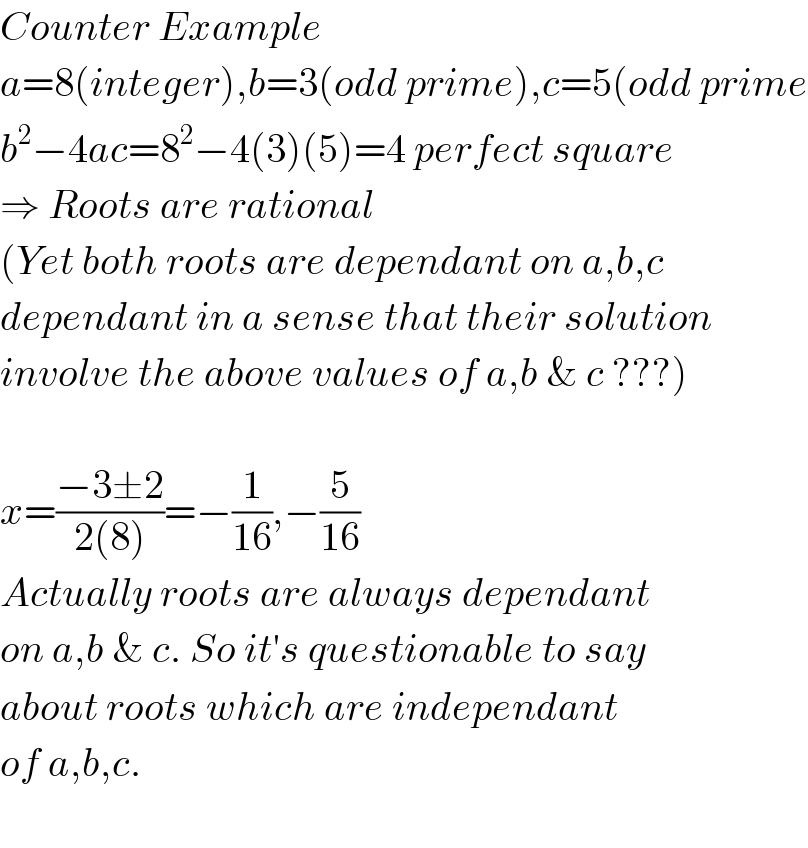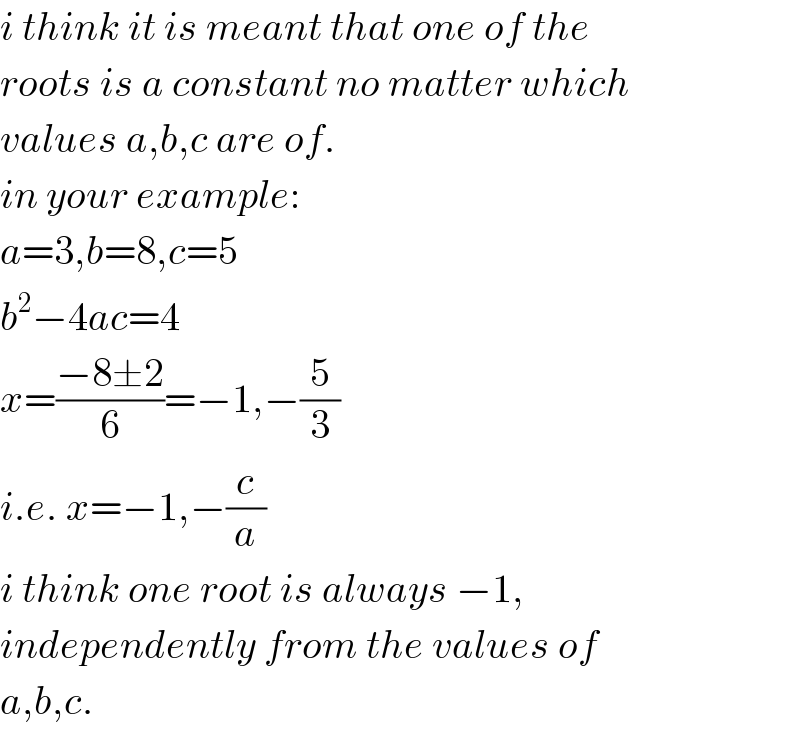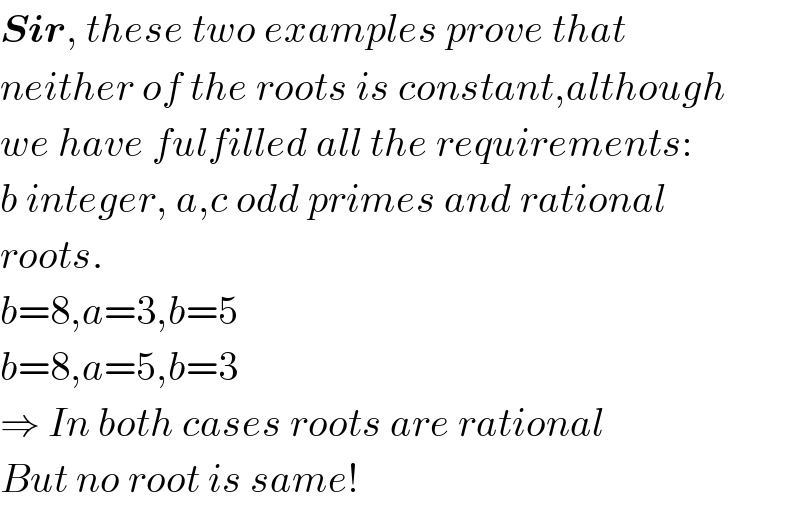
Question and Answers Forum
Question Number 62672 by bshahid010@gmail.com last updated on 24/Jun/19

Commented by Rasheed.Sindhi last updated on 24/Jun/19

Commented by mr W last updated on 24/Jun/19

Commented by MJS last updated on 24/Jun/19

Commented by mr W last updated on 24/Jun/19

Commented by bshahid010@gmail.com last updated on 24/Jun/19

Commented by Rasheed.Sindhi last updated on 24/Jun/19

Commented by mr W last updated on 24/Jun/19

Commented by Rasheed.Sindhi last updated on 24/Jun/19

Commented by MJS last updated on 24/Jun/19
![a=p c=p±2n b=±2(n+p) ⇒ x=∓1∨x=∓((2n+p)/p) b=±[p(2n+p)+1] ⇒ x=∓(2n+p)∨x=∓(1/p)](Q62729.png)
Answered by mr W last updated on 24/Jun/19

Commented by Rasheed.Sindhi last updated on 24/Jun/19

Commented by mr W last updated on 24/Jun/19

